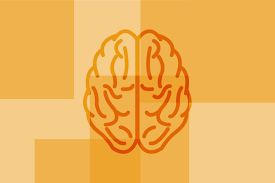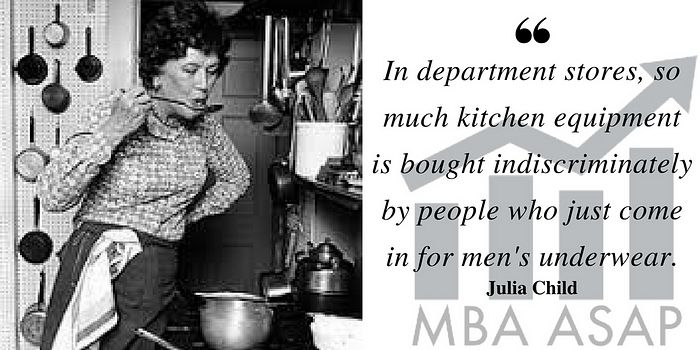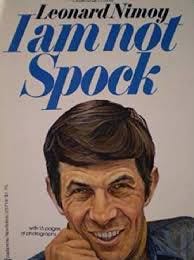Oh, come on! Behavioral Economics: What makes us do what we do
Behavior: What Came Before and What Happens After

We are not like Spock.
Oh, come on! Behavioral Economics: What makes us do what we do.
Behavior: What Came Before and What Happens After

We are not like Spock.
Behavioral economics is a brave effort to improve the basic ideas of classical economics when it comes to how people really behave and make decisions. It probably doesn't surprise you that we humans don't always think very clearly while trying to figure out what's best for us. We don't always act right. We don't always make the best choices. I know that I made some bad choices when I bought things and put them in my closets and garage. That should be taken into consideration by economics.
The Wealth of Nations by Adam Smith, published in 1776, was the first book to talk about this. Since then, economics has come a long way toward becoming a respected applied science. It achieved this by looking at how humans make judgments in a general way.
Classical economics made the arithmetic simple by saying that humans always make the best choices for ourselves, which gives us the most joy and gain. Well, guess what? It doesn't have to be that way.
Classical economics is excellent at explaining what happened after it happened, but not so good at forecasting what will happen. Do you remember 2008? Or 1929?
Laurence Peter, a Canadian like Mike Myers and the author of the Peter Principle, expressed it best:
An economist is someone who can tell you why the things he thought would happen today didn't happen tomorrow.
Economic events and disasters are basically the result of many people acting in ways that cancel each other out and add up to rogue waves. Maybe the low predictive ability is partly due to making assumptions about how people act too simply.

Physics is a pure science that occasionally has a comparable connection to things that happen in real life. The tale goes that a dairy farmer hired a physicist to look at his cows and how much milk they made. The physicist looked over the farm and the operation, left for six months, and then came back with his report. He started:
Imagine a spherical cow with a constant density...
The ways of creating theory include simplification, reductionism, and abstraction. Every theoretical system is based on ideas that are accepted for granted, like the five axioms of geometry. Economics advanced significantly with the creation of analytical tools predicated on the simple premise of perfect rationality among players. In theory.
Not so much in practice. For more than 200 years, the idea of free markets has ruled the globe, shaping both politics and economics around the idea that market forces always find the best way to solve any issue of allocation. Any issue. All issues. We are now investigating more refined interpretations of capitalism and economics based on a more sophisticated understanding of behavior.

Behavioral economics is a way to study the economy that uses what we know about how people act to help us understand how they make choices about money. Conventional economics posits that individuals are entirely rational agents that perpetually seek to optimize their decision-making processes.

If it were a genuine and accurate depiction of how humans behave, then there wouldn't be any advertising or impulse buying areas in supermarkets. Behavioral Economics endeavors to provide a more nuanced and intricate depiction of human decision-making processes, heuristics, and cognitive biases. We are not Spock, as Leonard Nimoy said.

One of the biggest advances in how we think about how we make decisions comes from looking closely at the short cuts we utilize to rapidly figure out a situation and respond. Heuristics is the name for these shortcuts. Heuristics are really useful ways to solve problems, particularly when you need to make a rapid choice, like the fight-or-flight one humans had to make on the savannah a few hundred thousand years ago. They are not guaranteed to be the best or flawless; they are only good enough for the time being. These days, they may lure us and be used by smart marketers and con artists.
Behavioral economics can help us understand who we are. In the Matrix, Morpheus declares, "You take the blue pill, the story ends." You wake up in your bed and can believe anything you choose. If you swallow the red pill, you remain in Wonderland, and I show you how deep the rabbit hole goes.
Here is a collection of what I believe are the top books on behavioral economics.
Take the red pill...
Download Resource(s)
Oh, come on! Behavioral Economics: What makes us do what we do

Behavior: What Came Before and What Happens After

We are not like Spock.
Oh, come on! Behavioral Economics: What makes us do what we do.
Behavior: What Came Before and What Happens After

We are not like Spock.
Behavioral economics is a brave effort to improve the basic ideas of classical economics when it comes to how people really behave and make decisions. It probably doesn't surprise you that we humans don't always think very clearly while trying to figure out what's best for us. We don't always act right. We don't always make the best choices. I know that I made some bad choices when I bought things and put them in my closets and garage. That should be taken into consideration by economics.
The Wealth of Nations by Adam Smith, published in 1776, was the first book to talk about this. Since then, economics has come a long way toward becoming a respected applied science. It achieved this by looking at how humans make judgments in a general way.
Classical economics made the arithmetic simple by saying that humans always make the best choices for ourselves, which gives us the most joy and gain. Well, guess what? It doesn't have to be that way.
Classical economics is excellent at explaining what happened after it happened, but not so good at forecasting what will happen. Do you remember 2008? Or 1929?
Laurence Peter, a Canadian like Mike Myers and the author of the Peter Principle, expressed it best:
An economist is someone who can tell you why the things he thought would happen today didn't happen tomorrow.
Economic events and disasters are basically the result of many people acting in ways that cancel each other out and add up to rogue waves. Maybe the low predictive ability is partly due to making assumptions about how people act too simply.

Physics is a pure science that occasionally has a comparable connection to things that happen in real life. The tale goes that a dairy farmer hired a physicist to look at his cows and how much milk they made. The physicist looked over the farm and the operation, left for six months, and then came back with his report. He started:
Imagine a spherical cow with a constant density...
The ways of creating theory include simplification, reductionism, and abstraction. Every theoretical system is based on ideas that are accepted for granted, like the five axioms of geometry. Economics advanced significantly with the creation of analytical tools predicated on the simple premise of perfect rationality among players. In theory.
Not so much in practice. For more than 200 years, the idea of free markets has ruled the globe, shaping both politics and economics around the idea that market forces always find the best way to solve any issue of allocation. Any issue. All issues. We are now investigating more refined interpretations of capitalism and economics based on a more sophisticated understanding of behavior.

Behavioral economics is a way to study the economy that uses what we know about how people act to help us understand how they make choices about money. Conventional economics posits that individuals are entirely rational agents that perpetually seek to optimize their decision-making processes.

If it were a genuine and accurate depiction of how humans behave, then there wouldn't be any advertising or impulse buying areas in supermarkets. Behavioral Economics endeavors to provide a more nuanced and intricate depiction of human decision-making processes, heuristics, and cognitive biases. We are not Spock, as Leonard Nimoy said.

One of the biggest advances in how we think about how we make decisions comes from looking closely at the short cuts we utilize to rapidly figure out a situation and respond. Heuristics is the name for these shortcuts. Heuristics are really useful ways to solve problems, particularly when you need to make a rapid choice, like the fight-or-flight one humans had to make on the savannah a few hundred thousand years ago. They are not guaranteed to be the best or flawless; they are only good enough for the time being. These days, they may lure us and be used by smart marketers and con artists.
Behavioral economics can help us understand who we are. In the Matrix, Morpheus declares, "You take the blue pill, the story ends." You wake up in your bed and can believe anything you choose. If you swallow the red pill, you remain in Wonderland, and I show you how deep the rabbit hole goes.
Here is a collection of what I believe are the top books on behavioral economics.
Take the red pill...
Ready to Navigate the Startup Funding Journey?
Learn how to raise the right kind of capital at the right time. Whether you're building your first MVP or aiming for Unicorn status, understanding funding rounds is crucial to your startup’s success. Dive in and take control of your growth path today.

FAQ
Dropdown Label









